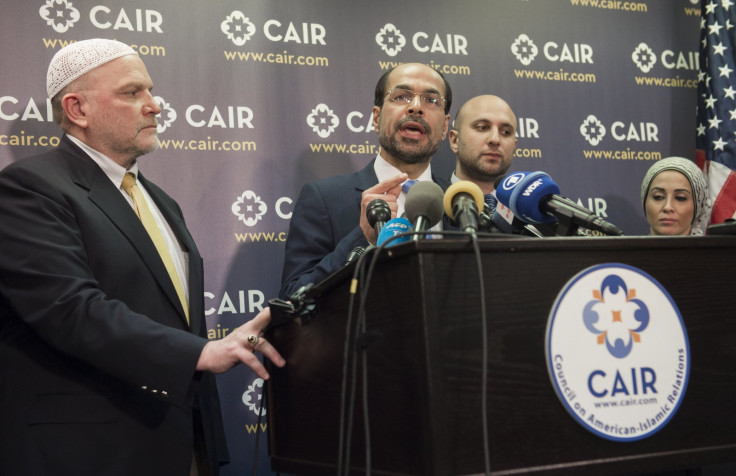Council for American-Islamic Relations files lawsuit against Trump's 'Muslim ban'
Civil rights group condemns president's executive order as a 'Muslim exclusion order'.

Civil rights and advocacy group the Council for American Islamic Relations (CAIR) filed a federal lawsuit on Monday (30 January) claiming that US President Donald Trump's temporary travel ban on people from seven Muslim majority countries is unconstitutional.
CAIR said that the lawsuit was filed on behalf of "more than 20 named and 'John Doe' individuals".
The lawsuit claims that "the absence of the words Islam or Muslim does nothing to obscure" the law's real intent.
It goes on to say that the order has a "second and equally central purpose ... to initiate the mass expulsion of immigrant and nonimmigrant Muslims lawfully residing in the United States by denying them the ability to renew their lawful status or receive immigration benefits afforded to them under the Immigration and Nationality Act of 1965 – based solely on their religious beliefs".
The order has already been branded "unconstitutional, un-American, and unlawful" by the Attorney Generals of 15 states and the District of Columbia, and has sprouted protest movements all over the US. In the UK, it has led to calls for Trump's planned visit to be cancelled, with a petition reaching over 1.5 million signatures.
The White House struck back at criticism on Sunday (29 January) in a statement that took aim at the media and claimed that the order was similar to an Obama administration order from 2011.
"My policy is similar to what President Obama did in 2011 when he banned visas for refugees from Iraq for six months. The seven countries named in the Executive Order are the same countries previously identified by the Obama administration as sources of terror."
The statement also tried to attack the dubbing of the order as a Muslim ban. Trump said: "To be clear, this is not a Muslim ban as the media are falsely reporting. This is not about religion – this is about terror and keeping our country safe."
The CAIR lawsuit disputes that. Referring to the order as the "Muslim Exclusion Order", it reads: "The Muslim Exclusion Order is also narrower than originally proposed, because it applies only to a subset of Muslims rather than all Muslims. This, however, does not cure the policy of its constitutional infirmity. While the Muslim Exclusion Order does not apply to all Muslims, the policy only applies to Muslims."
© Copyright IBTimes 2025. All rights reserved.






















